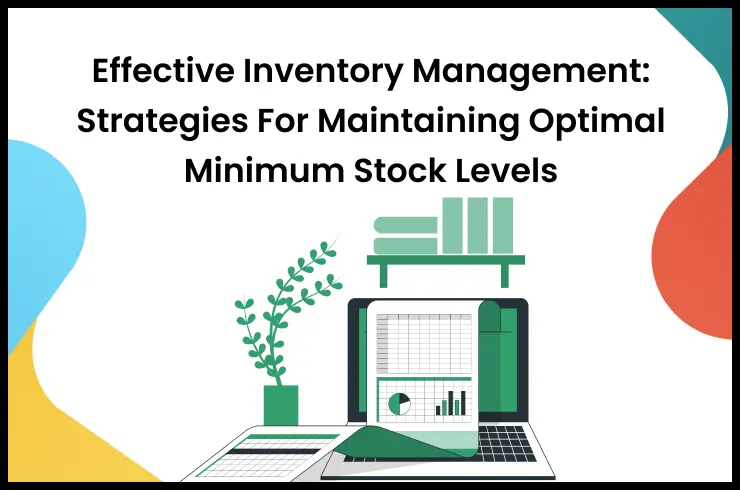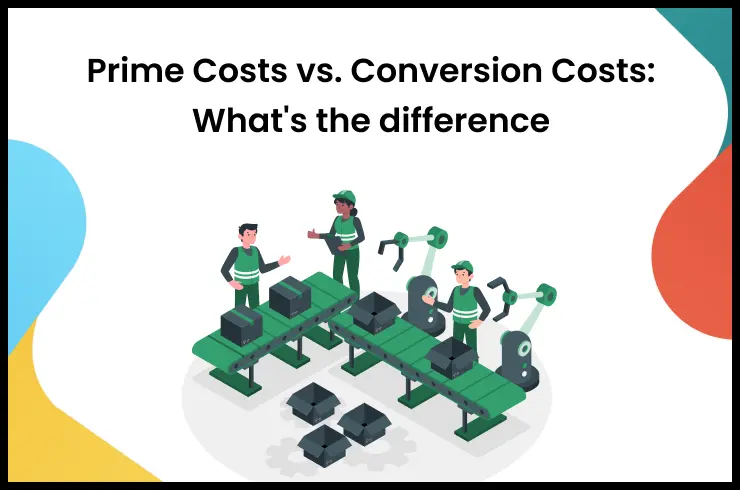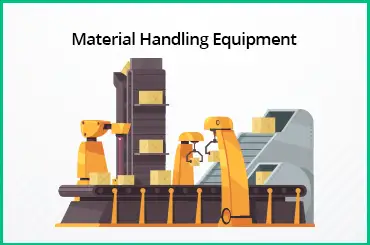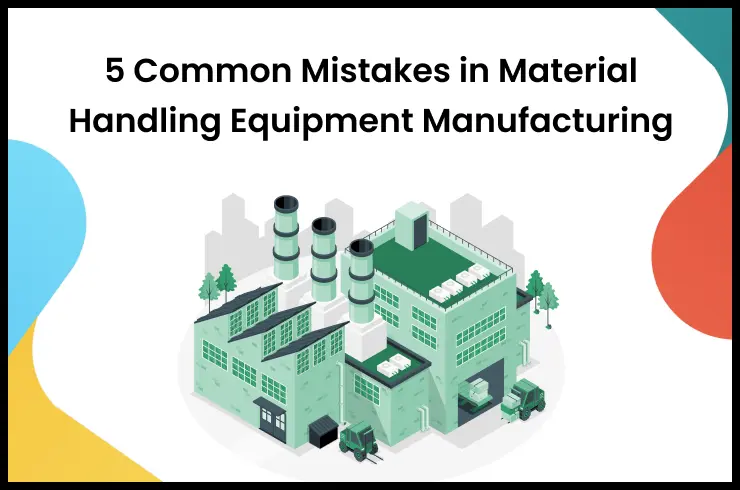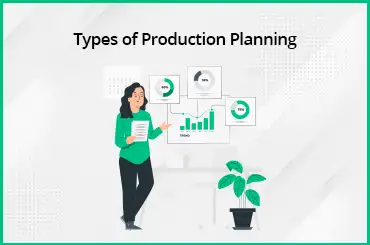Taking control of production and manufacturing of a product is not easy. And to do this efficiently is even harder. Some common challenges are extra costs because of unoptimised processes, lack of inventory management and difficulty in resource planning. This is where production planning software comes in handy. It helps in managing the manufacturing process in a way that the overall operations of a business level up. In this blog post, we will talk about what production planning software is, why it is important, and how it makes factories work better.
Understanding Production Planning Software
Production planning software is a technology-driven tool helpful for managing the manufacturing process. It helps manufacturers plan, schedule, and control production activities smoothly. Some of its main features include inventory tracking, assigning resources, making schedules, and real-time tracking of operations. This software simplifies and boosts the production planning processes of manufacturing businesses.
Production planning software also improves the manufacturing process in many other ways. A few of these include reduced costs, better inventory management, resource planning, etc. These benefits can lead your business to success. The software also helps with managing Bills of Materials (BOM), which makes production even smoother and more accurate.
Importance Of Improving Productivity In Manufacturing
Do you want your business to be improving manufacturing efficiency and learn how to improve production in manufacturing of your factory? It all comes down to how you plan your production process. With production planning software, manufacturers can:
- Make operations run smoother.
- Cut costs tied to making products.
- Meet customers' needs better and faster.
- Boost overall profits in a big way.
- Improve overall management
Production Planning Process
Production planning is a detailed process and results in many benefits. Here are some important steps of the production planning process:
- Demand Forecasting: Demand forecasting involves looking ahead to predict what goods customers will want. This helps make good schedules and have enough items on hand. Knowing the requirement lets businesses plan and stock levels accurately.
- Resource Allocation: This involves assigning workers, materials, and machines to tasks. It is important to do these properly for impactful production results.
- Scheduling the Production: This involves carefully planning when each job must be done. This lets you use resources well and finish on time.
- Monitoring and Control: This involves overseeing the working of operations and changing plans as needed. This keeps production smooth and products high-quality. Keeping a constant check on the production planning processes is important.
Enhancing Functions of Production Planning
Manufacturing process software has many functions and they all help a manufacturer in different ways. Here are the most important functions:
- Date Integration: Combining data from multiple sources to provide real-time insights into production processes and performance.
- Algorithms Improvement: Using advanced technology to upgrade production schedules, resource allocation, and inventory management.
- Demand Forecasting: Using historical data and predictive analytics to predict demand correctly and plan production accordingly.
- Resource Allocation: Automatically assign resources and make production schedules based on demand patterns, resource availability, and production limitations.
- Team Collaboration: Establishing communication and teamwork among different departments and stakeholders to make sure of improved teamwork and decision-making.
5 Strategies To Improve Productivity In Manufacturing
Production planning software improves manufacturing by improving schedules, resource usage, and increasing communication. There are some strategies you need to follow to see these benefits in your business. Here are the five primary ways to improve manufacturing productivity and efficiency the right way:
1. Improved Production Scheduling
Production planning software allows better manufacturing schedules that consider many factors. These factors are useful resource availability, manufacturing limitations, and client calls. Automating the scheduling process and the usage of advanced technology minimizes time wastage, reduces lead instances, and maximizes the use of resources.
2. Improved Resource Use
Production planning software helps allocate resources such as manpower, objects, and systems to manufacturing tasks more correctly. Assessing production data and recognizing issues or inefficiencies helps assign resources better. This reduces wastage and increases productivity.
3. Improved Visibility and Communication
Production planning software helps businesses keep track of how things are going with the production process. It also lets you find out about any problems, and decide what to do. It helps different parts of the business communicate smoothly so everyone knows what they're doing.
4. Better Inventory Management
The production planning software helps businesses manage their production better by figuring out how much inventory is required. This helps you keep track of what's coming in and going out. This saves money, makes sure things keep moving smoothly, and gets products to customers on time.
5. Quick Response to Changes
If something changes, this software helps businesses fix it quickly. For example, if more customers want to buy a product or if something goes wrong, you can adjust accordingly. Overall, it helps them make things better, save money, and compete with other businesses.
Boosting Operational Efficiency In Manufacturing
Improving production planning is important for Indian SME manufacturers and traders to stay competitive in business. You can use production planning tools to help you be efficient and competitive. Here is how you can improve manufacturing processes.
1. Accurate demand forecasting
The first step is to figure out the consumer's demand. This helps in more effective production plans. By looking at past sales, market trends, and what customers like, businesses can predict what people want. This helps manufacturers plan and make the right products, without overstocking or understocking.
2. Dynamic product scheduling
The ability to change plans quickly is an important factor in manufacturing. With flexible production scheduling, businesses can adjust production based on demand and other factors. By using production software, they can plan out what to make, switch between tasks, and use their equipment more efficiently.
3. Effective resource management
It also involves using resources smartly, which means using workforce, materials, and equipment efficiently. By balancing workloads, reducing time wastage, and making sure everything is available when needed, businesses can make more things while spending less money.
4. Streamlined workflow integration
It is important for manufacturers to have smooth workflows and manage how tasks move from one step to the next. By getting different parts of the process to work together, businesses can avoid delays, get production done faster, and be more efficient overall.
5. Performance Monitoring & Improvement
For smaller businesses, using different ways to improve manufacturing productivity and efficiency is important. By watching key performance indicators (KPIs), finding areas that need improvement, and making changes when needed, businesses can keep getting better at what they do.
Boost Manufacturing Efficiency with TranZact
Improving manufacturing efficiency means making more effective production plans. For that, you will have to predict the requirements, change plans instantly, use resources wisely, and keep workflows smooth. All of this requires a lot of manual effort. These are some of the ways to improve manufacturing efficiency. It will not only increase the need for a workforce but costs too.
A production management software can help you with that. It makes planning easier, improves communication, and manages inventory better. TranZact is one such software that is specifically made for Indian SME manufacturers. It can automate your production process and help you be efficient. It can help you stay ahead in today's fast-changing market.
FAQS
1. What is production planning?
Production planning is about organizing and scheduling the manufacturing process to make sure they're done efficiently, at the right quality, and on time.
2. What are the 5 steps in the production planning process?
The five steps in the production planning process are
- Predicting demand
- Planning capacity
- Making schedules
- Figuring out the need for materials
- Making sure the product is as planned
Q3. What are the 4 types of production processes?
The four types of production planning processes are:
- Job shop production
- Batch production
- Mass production
- Continuous production
Q4. What is the main function of production planning?
The main job of production planning is to use resources efficiently, keep costs low, and make the quality good to keep customers satisfied.
Q5. How to improve productivity in manufacturing?
To improve productivity, you can use a production planning software. This makes processes better, uses new technology, trains workers, and makes workflows simpler.
Q6. How can manufacturing efficiency be improved?
Improving efficiency needs using lean manufacturing methods, making workflows smoother, and using machines to do tasks instead of people to make things faster and easier.
Q7. What is operational efficiency in production?
Operational efficiency means how well a manufacturing process can make things. It's about making processes, resources, and workflows work well to get the job done right.
Q8. What are the tools of production planning and control?
Production planning tools include software like MRP and ERP systems, which help with scheduling, managing resources, and keeping everything running smoothly in manufacturing.









